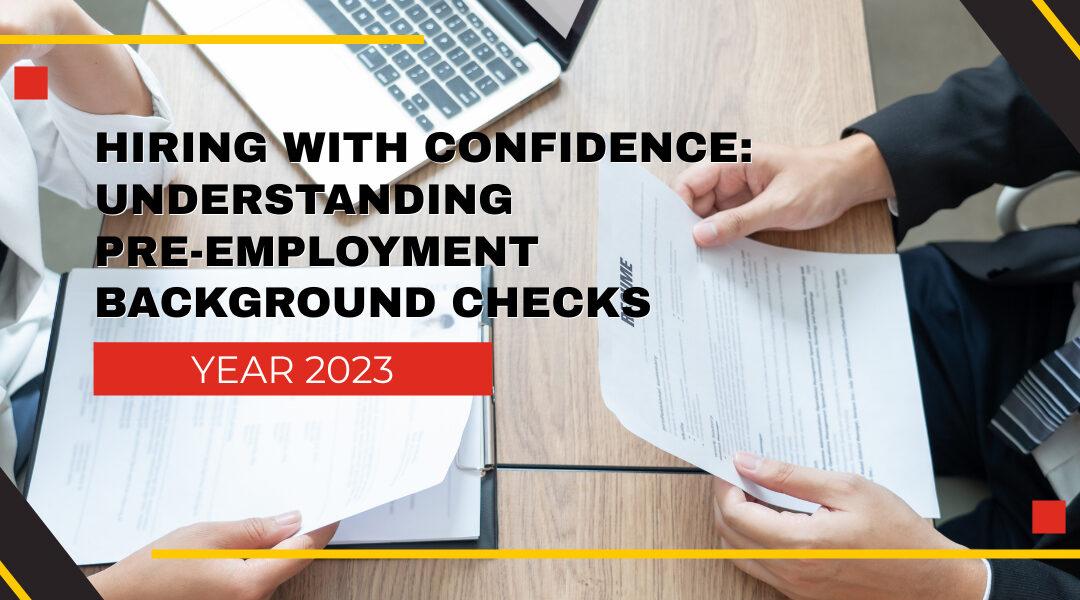Pre-employment background checks are a critical step in the hiring process for many organizations. These checks provide employers with valuable information about potential employees, helping them make informed decisions about who to hire. In this article, we will explore what pre-employment background checks are, why they are important, and what employers should consider when conducting these checks.
What are Pre-Employment Background Checks?
It’s a process that involves reviewing an applicant’s criminal and credit history, as well as their employment and educational background. The purpose of these checks is to help employers assess the suitability of an applicant for a particular job.
Why are Pre-Employment Background Checks Important?
Pre-employment background checks are important for several reasons. Firstly, they help employers to ensure the safety of their employees and customers. By reviewing an applicant’s criminal history, employers can determine if they have a history of violent or dangerous behavior that would make them unsuitable for certain positions.
Secondly, background checks help to prevent fraud and misrepresentation. Applicants may provide false information on their resumes or job applications, and background checks can help to verify their claims. For example, if an applicant claims to have a degree from a particular university, the background check can verify if this is true.
Thirdly, background checks can help employers to avoid hiring individuals with a history of workplace misconduct. This may include an applicant who has been fired from previous jobs for theft, harassment, or other inappropriate behavior. By conducting background checks, employers can avoid hiring individuals who may cause problems in the workplace.
What Should Employers Consider When Conducting Pre-Employment Background Checks?
When conducting pre-employment background checks, employers should consider several factors, including:
- Legal requirements: Employers must comply with all applicable laws when conducting background checks, including the Fair Credit Reporting Act (FCRA) and state-specific laws. The FCRA requires employers to obtain written consent from applicants before conducting a background check and to provide applicants with a copy of the results.
- Type of check: Employers should determine what type of background check they need to conduct, such as a criminal background check, credit check, or employment verification. The type of check required will depend on the job duties and responsibilities of the position.
- Timing: Employers should consider when to conduct the background check. Many employers conduct these checks after a job offer has been made, but before the employee starts work. This ensures that the background check does not cause any undue delays in the hiring process.
- Consistency: Employers should ensure that they conduct background checks consistently for all job applicants, regardless of race, gender, or other factors. This helps to avoid discrimination and ensures that all applicants are treated fairly.
In conclusion, pre-employment background checks are an important tool for employers when making hiring decisions. These checks provide valuable information about an applicant’s background and help to ensure the safety of employees and customers, prevent fraud and misrepresentation, and avoid hiring individuals with a history of workplace misconduct. Employers should consider all relevant factors when conducting these checks and comply with all applicable laws.
